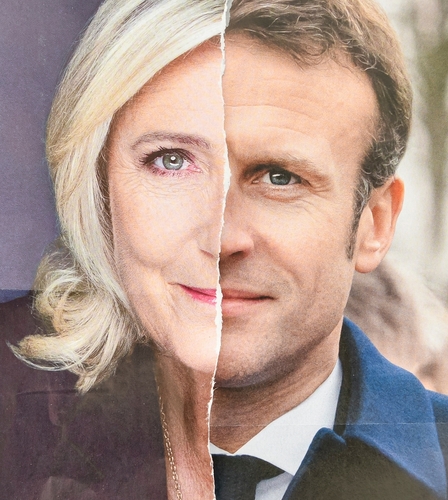
Early elections in France: the opportunity for a French New Right
 Macron dissolved Parliament, following the clear success of Marine Le Pen’s Rassemblement National (ID), officially kicking off the electoral campaign. In a press conference lasting two hours, the positions of the former French president were clear: fear of political factionalism, of extremism (right-wing with Le Pen and left-wing with Mélenchon), a strong demonstration of the concept of democracy to those who criticize the choice of early elections, while respecting the will of the French people.
Macron dissolved Parliament, following the clear success of Marine Le Pen’s Rassemblement National (ID), officially kicking off the electoral campaign. In a press conference lasting two hours, the positions of the former French president were clear: fear of political factionalism, of extremism (right-wing with Le Pen and left-wing with Mélenchon), a strong demonstration of the concept of democracy to those who criticize the choice of early elections, while respecting the will of the French people.
The emphasis, however, was placed on the values that drive his programmatic speech, his and that of that Reinassance (RE) which now appeals to the left-wing electorate distant from La France Insoumise (LFI, GUE/NGL) and also from the Socialist Party (PS, S&D) led by Raphael Glucksmann.
Macron accused Jean-Luc Mélenchon’s radical left of anti-Semitism and anti-parliamentarism, accusing it of having created constant and worrying disorders within the National Assembly. Faced with this political life made up, according to him, of “bricolages d’appareils”, the president was keen to demonstrate a “sincere and humble desire to build consensus and weave compromises” thanks to the help of the social democrats on the one hand and of the republican right (LR, EPP) on the other. He thus spoke of a “federation of projects to govern”, it is now up to the parties in the presidential camp, deprived of their absolute majority for two years, to initiate dialogue with the other political groups.
In the meantime, however, a coalition has already been formed, that of the New Popular Front with socialists, greens, and supporters of Mélenchon: a coalition that has already divided almost all of the 577 constituencies in view of the early legislative elections. The synthesis was found in a “plural” leadership, according to the outgoing MP François Ruffin (LFI) who then shifted attention to the electoral campaign and the need for a united left against “the union of racists and the wealthy”, thus marking a break even with the Macronians and Gaullists.
The leader of La France Insoumise, Jean Luc Mélenchon, when questioned on the same topic, has a flexible response: “Je ne m’elimine pas, mais je ne m’impose pas”, he does not eliminate himself but he does not impose himself, declaring himself however absolutely capable of being able to play the role of Prime Minister in the event of a landslide victory for the left in the legislative elections. He then appealed to the formula proposed by the national secretary of the PS, Olivier Faure, to decide who would lead a possible government of the “new popular front”.
The latest polls in the meantime see Marine Le Pen’s party at 30%, with President Jordan Bardella as the leading candidate for the role of Premier, with the aim of asking for Macron’s resignation in the event of victory. Reinassance, crushed by the two poles, is at around 20% and has already decided not to present candidates in around 20 constituencies considered losers from the start.
In both scenarios, the French Constitution remains firm, so foreign policy, international alliances, and defense remain the prerogatives of the President of the Republic – or Macron – for the remaining 3 years of his Presidential mandate, as does the position of Chief of Forces Armed.
The results are difficult to read, given the French electoral system: the constituencies can either be won in the first round if a candidate exceeds 50% of the votes and 25% of those entitled to vote, otherwise, all those who have reached at least 12.5% of straight ahead. So it is possible that there will be two-way ballots (RN against NFP) or three-way ballots (RN, NFP, and Reinassance), while those who hardly have any hope of salvation would be the Gaullists.
They could be the tipping point: by going with Macron they could try to contain Mélenchon and challenge Le Pen in the run-offs; by going with Le Pen they could guarantee a New Right for France. A complex but decisive challenge for the future of France.



 Subscribe
Subscribe